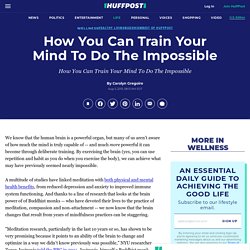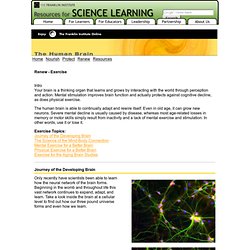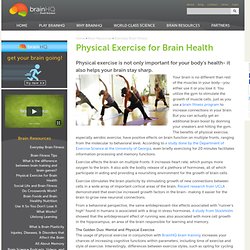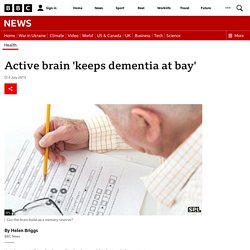

Does Thinking Really Hard Burn More Calories? Between October and June they shuffle out of auditoriums, gymnasiums and classrooms, their eyes adjusting to the sunlight as their fingers fumble to awaken cell phones that have been silent for four consecutive hours.

Some raise a hand to their foreheads, as though trying to rub away a headache. Others linger in front of the parking lot, unsure of what to do next. They are absolutely exhausted, but not because of any strenuous physical activity. Rather, these high school students have just taken the SAT. "I was fast asleep as soon as I got home," Ikra Ahmad told The Local, a New York Times blog, when she was interviewed for a story on "SAT hangover. " Temporary mental exhaustion is a genuine and common phenomenon, which, it is important to note, differs from chronic mental fatigue associated with regular sleep deprivation and some medical disorders. So a typical adult human brain runs on around 12 watts—a fifth of the power required by a standard 60 watt lightbulb.
Impact of intensity of practice af... [Disabil Rehabil. 2006 Jul 15-30. Ten Ways to Get People to Change - Morten T. Hansen. Brain Training. How You Can Train Your Mind To Do The Impossible. We know that the human brain is a powerful organ, but many of us aren't aware of how much the mind is truly capable of -- and much more powerful it can become through deliberate training.

By exercising the brain (yes, you can use repetition and habit as you do when you exercise the body), we can achieve what may have previously seemed nearly impossible. A multitude of studies have linked meditation with both physical and mental health benefits, from reduced depression and anxiety to improved immune system functioning. And thanks to a line of research that looks at the brain power of of Buddhist monks -- who have devoted their lives to the practice of meditation, compassion and non-attachment -- we now know that the brain changes that result from years of mindfulness practices can be staggering. "What we found is that the longtime practitioners showed brain activation on a scale we have never seen before," neuroscientist and meditation researcher, Richard J. You can increase your empathy. The Human Brain - Exercise. In a sedentary group of people aged 60 to 75, University of Illinois researchers introduced them to a fitness regime.

For six months the elders had either an aerobic or non-aerobic workout for up to 90 minutes, three times a week. "We chose couch potatoes," said the study's lead author, cognitive neuroscientist Arthur Kramer. The 214 healthy adults hadn't been involved in any physical exercise for the previous 5 to 10 years. "Indeed most of our subjects hadn't done any formal exercise for more like 30 or 40 years. " One group took long walks three times a week, and the other only did gentle toning and stretching exercises using weights. "We see selective cognitive benefits which accompany improvement in aerobic fitness," says Kramer. Even beyond age 70, cardiovascular exercise can improve memory and reasoning skills. Topics. Can taichi reshape the brain? Morphometry PLoS One. 2013.
Voluntary exercise increases axonal... [Proc Natl Acad Sci U S A. 2004. Physical Exercise and Brain Health, Help Your Brain Stay Sharp. Your brain is no different than rest of the muscles in your body--you either use it or you lose it.

You utilize the gym to stimulate the growth of muscle cells, just as you use a brain fitness program to increase connections in your brain. But you can actually get an additional brain boost by donning your sneakers and hitting the gym. The benefits of physical exercise, especially aerobic exercise, have positive effects on brain function on multiple fronts, ranging from the molecular to behavioral level. According to a study done by the Department of Exercise Science at the University of Georgia, even briefly exercising for 20 minutes facilitates information processing and memory functions. Exercise affects the brain on multiple fronts. Attention Span Statistics. Attention Spans Have Dropped from 12 Minutes to 5 Minutes — How Social Media is Ruining Our Minds [Infographic] How You Can Train Your Mind To Do The Impossible. Active brain 'keeps dementia at bay' 3 July 2013Last updated at 19:54 ET By Helen Briggs BBC News Can the brain build up a memory reserve?

Keeping mentally active by reading books or writing letters helps protect the brain in old age, a study suggests. A lifetime of mental challenges leads to slower cognitive decline after factoring out dementia's impact on the brain, US researchers say. The study, published in Neurology, adds weight to the idea that dementia onset can be delayed by lifestyle factors. An Alzheimer's charity said the best way to lower dementia risk was to eat a balanced diet, exercise and stay slim.
In a US study, 294 people over the age of 55 were given tests that measured memory and thinking, every year for about six years until their deaths. Continue reading the main story “Start Quote The brain that we have in old age depends in part on what we habitually ask it to do in life” End QuoteDr Robert WilsonRush University Medical Center Cognitive reserve.